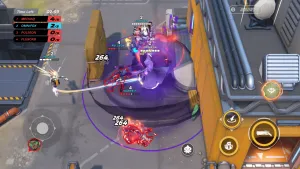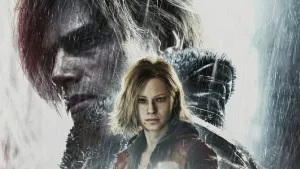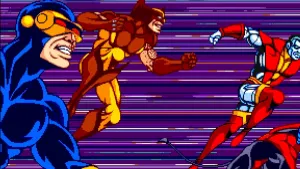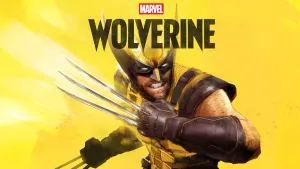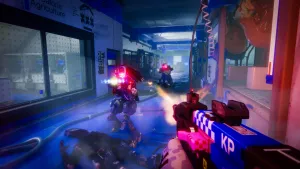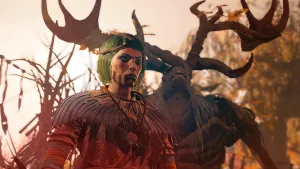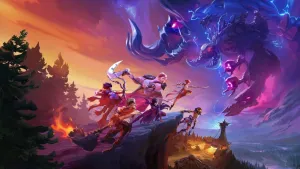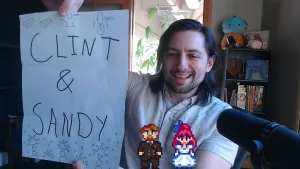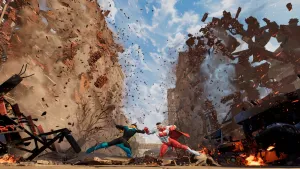Ten Monster Hunters To Play While You Wait For Pokémon Sun & Moon

Pokémon has become a household name in the 20 years since its release, sparking one cultural phenomenon after another. As the release date for the Generation VII looms ever closer it can be difficult to contain the excitement to new monsters to search for far and wide. With over 279 million units sold, it's no wonder that other developers have followed suit. While some of the worst ones were blatant cash grabs, others didn't get released in time or outside of Japan. These games may not be exactly the same as Pokémon, but they add a little spice to the already amazing formula, sometimes even improving upon it.

Robopon 2
Gameboy Advance, 2002
While the first Robopon game was an obvious rip-off of the Pokémon formula, the sequel improved it tremendously. In this game, robots called Robopon replace the pocket monsters we've grown to know and love. Getting these little robots is a different process too, with players combining items rather than grinding encounters hoping to find one. Legend titles replace gyms, but each battle is its own story arc that could almost be a game on its own. The protagonist goes from thwarting Yakuza, helping aliens find love, and getting in the middle of a parody Apple-Microsoft corporate takeover. Each storyline also involves traveling to the past, which gives the world an obscene amount of backstory. Combat is just as different, taking a more traditional RPG style with four party members. Robopon can be customized with different attacks and colors, making each player's party unique. Having this option is almost required because the various robot designs in the game aren't particularly inspired. Some of them are entirely useless as well since the game has a cap on the overall growth on each robot. Speaking of ineffectual things, multiplayer features for Robopon were robust but also mostly inaccessible even at the height of the series' popularity. While this series certainly started on the wrong foot, it ended up being a fairly good experience.

Dokapon: Monster Hunter
Gameboy Advance, 2001
Dungeon crawling has been part of the Pokémon series since players first stepped into Mt. Moon, but it wasn't until 2006 that players got a spin-off series dedicated to it. People didn't have to wait that long though, as Dokapon came out in 2001. The storyline starts off fairly basic as the protagonist tries to follow in his absentee father's footsteps of becoming a licensed adventurer. Soon there are clown pirates, ancient ruins and haunted lighthouses to change things up. This game (which isn't part of the Dokapon Kingdom series) is a mixture of mechanics from the mainline Pokémon series as well as Mystery Dungeon. Monster taming is coupled with randomly generated dungeons, along with the harsh difficulty the genre is known for. This game takes the idea of catching monsters quite literally, as you must set traps and bait before you can battle for a creature's loyalty. The battle system is a basic rock-paper-scissors format with two extra neutral options, making it much simpler than trying to counter the 18 types in Pokémon. The real difficulty comes from a punishing save system and roulettes for various interactions. Every item you pick up in dungeon is a game of chance that has you hoping you'll find something useful. Some of the more important mechanics aren't tied to this randomness (like monster catching) but it can make the game feel like grinding at its best and painfully unlucky at its worst. This game is extremely hit or miss, but for those that want a harder Mystery Dungeon it's one of the best answers you'll find.

Shin Megami Tensei
PlayStation 2, 2004 – Also on: iOS, 3DS, PSP, Vita
While Pokémon perfected having little monsters fight at your side, it was SMT that started it all. Western gamers didn't see a proper SMT release stateside until 2004, but the series actually began in 1992, making its monster-capturing mechanics older than Pokémon by a few years. Players could fight various demons inspired by folklore from around the world or try to negotiate with them to join your side. Convincing demons to be your friends isn't the only way you acquire them. In fact, the most powerful demons players can recruit are the result of fusing two that you already own. The stakes are high in these games as the player can choose to lead the world to authoritarian rule or allow it to become survival of the fittest. These two options are fairly polarizing, giving the game some tough decisions and mature themes you wouldn't see in the Pokémon universe. This also allows the game to be brutally difficult while still being believable. For example, it's easy to think that everything will kill you in Shin Megami Tensei III: Nocturne because the game starts with demons bringing about the end of the world. This series takes pride in the fact that you'll die time and again, giving it an extremely old-school feel even with modern-day releases like the recent SMT IV: Apocalypse. Thankfully, the music and demon design are so wonderfully crafted that it's less frustrating to die to the same otherworldly horror time and again. It isn't as kid-friendly or as easy as Pokémon, but the Shin Megami Tensei games are competent monster tamer RPGs that can explore some macabre stories and scary myths. You can easily hop into the latest entry for the series Shin Megami Tensei IV: Apocalypse on the 3DS, which I highly recommend for the Pokémon fan looking for a game as mature as they've become.

Dragon Quest Monsters
Gameboy Color, 2000 – Also on: GBA, Nintendo DS
At first glance, Dragon Quest Monsters might seem like a clone trying to ride on Pokémon's coattails, but in fact it may be the opposite. This spin-off series was the product of expanding a system in Dragon Quest V which came out in 1992 but was never released stateside. Rather than the fighting you expect from a game like Pokémon, Dragon Quest Monsters features a 3-on-3 battle system. This allows your team to have more of an effect on one another, but also makes fights less straightforward. If that wasn't complicated enough, each monster has its own personality, which can affect how it fights. So a more reckless monster will want to continue to attack the opposition rather than try to heal your teammates. Either way these monsters are still pretty to look at since all the character design is done by Dragon Ball Z creator Akira Toriyama. The most recent series, Dragon Quest Monsters Joker, has done away with random battles to further differentiate itself from Pokémon. The newest entry Joker 3 was released in Japan this year, though there hasn't been any talk of it coming stateside yet. For now the best entry to try out the series is Dragon Quest Monsters: Joker 2.

Pocket Mortys
iOS, Android, 2016
A straight-up Pokémon parody right down to the title, Pocket Mortys still does an amazing job paying homage to the beloved franchise. The game starts with Rick and Morty, from the hit Adult Swim show of the same name, in the garage lab when an alternate-reality costumed Rick emerges from a portal to try to catch the Morty we all know and love. Once the original Rick finds out about the "Morty craze" that has taken over the Citadel of Ricks, he decides to catch as many as he can. Almost everything is an exact replica of mechanics and tropes from Pokémon, though most are either simpler or more vulgar instead. Here rock-paper-scissors replaces type match-ups, and nihilistic dialogue supersedes the cutesy conversations normally found in Pokémon games. There are even badges and an end-game boss in the form of the Council of Ricks. Strangely enough Pocket Mortys is harder as well, with limited resources and being locked out of the "Morty Center" when you're out training. With no reliable way to heal your team, the solution becomes buying items from a store you can access any time. This is where the free-to-play elements rear their ugly head, as you can pay real money or watch ads to get in-game currency. Despite this hurdle, Pocket Mortys manages to be a fun clone that respects its inspiration while also poking fun at it.
For more monster hunter games not called Pokémon, head to page two.

Bestie Bay
iOS, 2013 – Also on: Android
Kairosoft has been in the mobile game industry since 1996, though they didn't really release games in the US until Game Dev Story in 2011. They've mainly made management simulators, which is the basis for Beastie Bay. Players must build homes for each of their captured animals, as well as pay upkeep costs and try to court tourists. It isn't until you get to the combat system where the similarities are the most apparent. After converting monsters of increasing absurdity to your side with bait, they help you in a team of three to explore new areas. These monsters fall into five category types, adding some strategy to battles. When expeditions take too long, you're forced into eating food resources, cementing the fact that this is a management sim above all else. While it's short and has some fairly basic monster designs, Beastie Bay is a cute distraction for a little while.

Yokai Watch
3DS, 2015
Ghost stories have always enthralled us but they're an even bigger deal in Japan. These ghosts are known as Yokai there and though they once were seen as scary they are now used as inspiration for cute toys or crazy tattoos. These monsters with established storylines are ripe for a game about trying to befriend as many as you can. That's easier said than done, as getting Yokai to fight with you involves bribing them with food or items. Fighting with your newfound friends is a strange affair consisting of 3-on-3 rotation battles with auto attacks. Because of this combat is just as much about the monsters you choose as it is about the position you put them in. It's less involved than Pokémon overall but still requires some strategy. Navigating this world full of scary spirits is more akin to the Mega Man Battle Network games, with more of a focus on exploring a lot of a small environment rather than traveling across the land. The random encounters are also different since Yokai are "hiding in plain sight" you have to try to find them in bushes or under cars. NPCs play a much bigger role as well, handing out small quests or dropping hints of where to recruit Yokai. These interactions make the world seem more vibrant but also smaller, since many of the story arcs include the same characters. The recent sequel changed things up a bit by going back in time, though it wasn't the innovation the series needs. While Yokai Watch didn't dethrone Pokémon as the most popular monster catching franchise, it's still a fairly fun series if slightly less complex.

Digimon: Cyber Sleuth
PS4, Vita, 2016
Digimon has a reputation for being a Pokémon clone, though it got its start in an entirely different market. Digimon was first marketed as "Tamagotchis for boys" but eventually the two had TV shows that competed for views. Even the video games were different for the most part, until the recent release of Cyber Sleuth. Most Digimon games have been closer to action RPGs, whereas this is closer to a traditional turn-based style game. While the localization in this title is mixed, the story is still enjoyable. The main character is turned into a half digital being by an "Eater," after which they're recruited by a cyber investigation squad. The story is mostly focused on these human counterparts, though the battles are strictly focused on the digital monsters. There are still some Tamagotchi elements in the form of a farm that allows you to feed and pick up poop to your heart's content. Some things were changed though, like digivolutions crossing over various species to make it easier to obtain them all. With 250 different Digimon to find, Cyber Sleuth could easily keep you entertained for a while.

Denpa Men Series
3DS, 2012
Wi-Fi signals aren't just things that get you internet access, if this game is to be believed. Instead they are also home to the Denpa Men, who ride these "waves" to get around. Thankfully your 3DS can see them, letting you recruit them to fight through various dungeons. These various little guys only have a few differences between them, like colors or antennas that give them abilities. The real attachment comes from leveling them up into more prominent party members. It's a fairly standard RPG in all other respects, though a limited story helps guide the player along. The first Denpa Man you meet says a loved one got kidnapped to the top of a tower, but needs your help finding friends to make the journey. Not every game needs to be overly complicated though, so having a quick, breezy story in Denpa Men makes it an easy RPG to pick up and play.

Puzzle and Dragons
iOS, Android, 2012
This pick kind of stretches the term "Pokémon-like" but it's for a good cause. P&D is a match-three puzzle game much like Pokémon Puzzle League, but adds a monster-catching aspect that includes great designs and guest characters. Recently the series even crossed over with Mario characters on a 3DS exclusive bundle. With no story to speak of, players are thrust into a world of running through dungeons while trying to get monsters on their side. Capturing these monsters is mostly up to chance as they only sometimes drop "eggs" that contain copies of them after being defeated. This where the free-to-play elements come in, as you can pay for chances to use a vending machine to get rarer monsters. Although this seems silly to do since almost all monsters have drop rates, Puzzle and Dragons is one of the highest-grossing apps in existence and the first to gross $1 billion in revenue. That's because although it starts off as a simple puzzle game, the more a player understands the higher the skill ceiling becomes. It isn't long before just matching three pieces turns into manipulating the entire board for giant combos. While this game isn't a grand adventure, it still manages to be fun and engaging without having to cost a cent.
Something about taming the monsters that you're supposed to be afraid of as a kid is enthralling in its own right. To turn them into your friends is a step beyond that. Almost everyone yearns for an adventure where you conquer your fears and find out new things about the world around you. Pokémon and other monster-tamer RPGs try to capture this feeling every time a player gets their first creature to embark on their quest. This sense of exploration and wonder has permeated this genre with an amazing amount of resilience. It's no wonder why the wait is so hard to have a new professor welcome us to the wonderful world of Pokémon.
